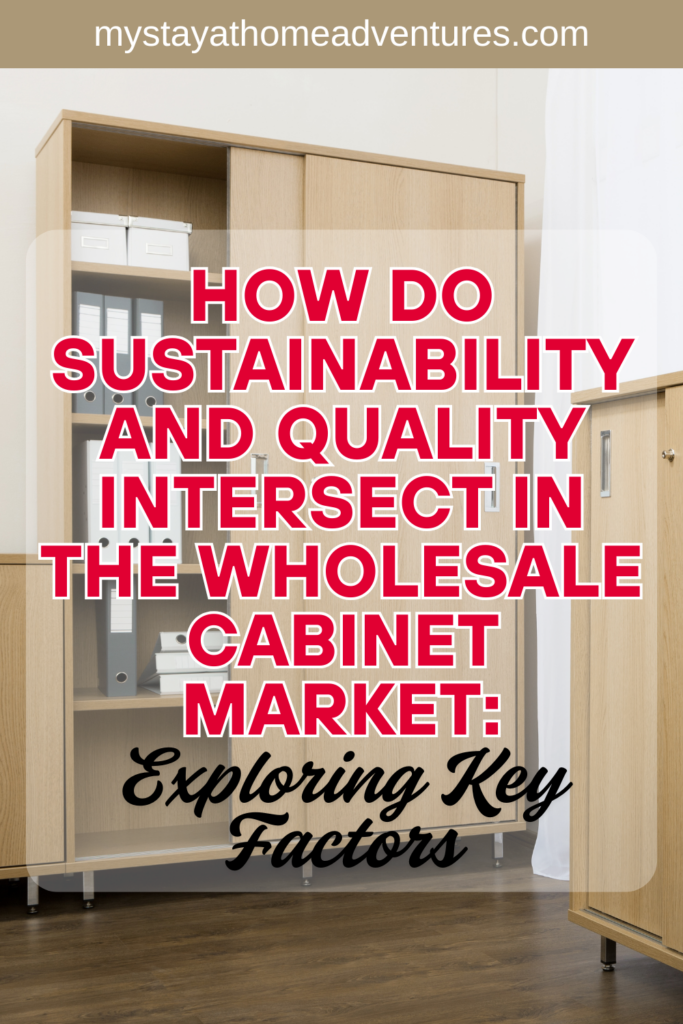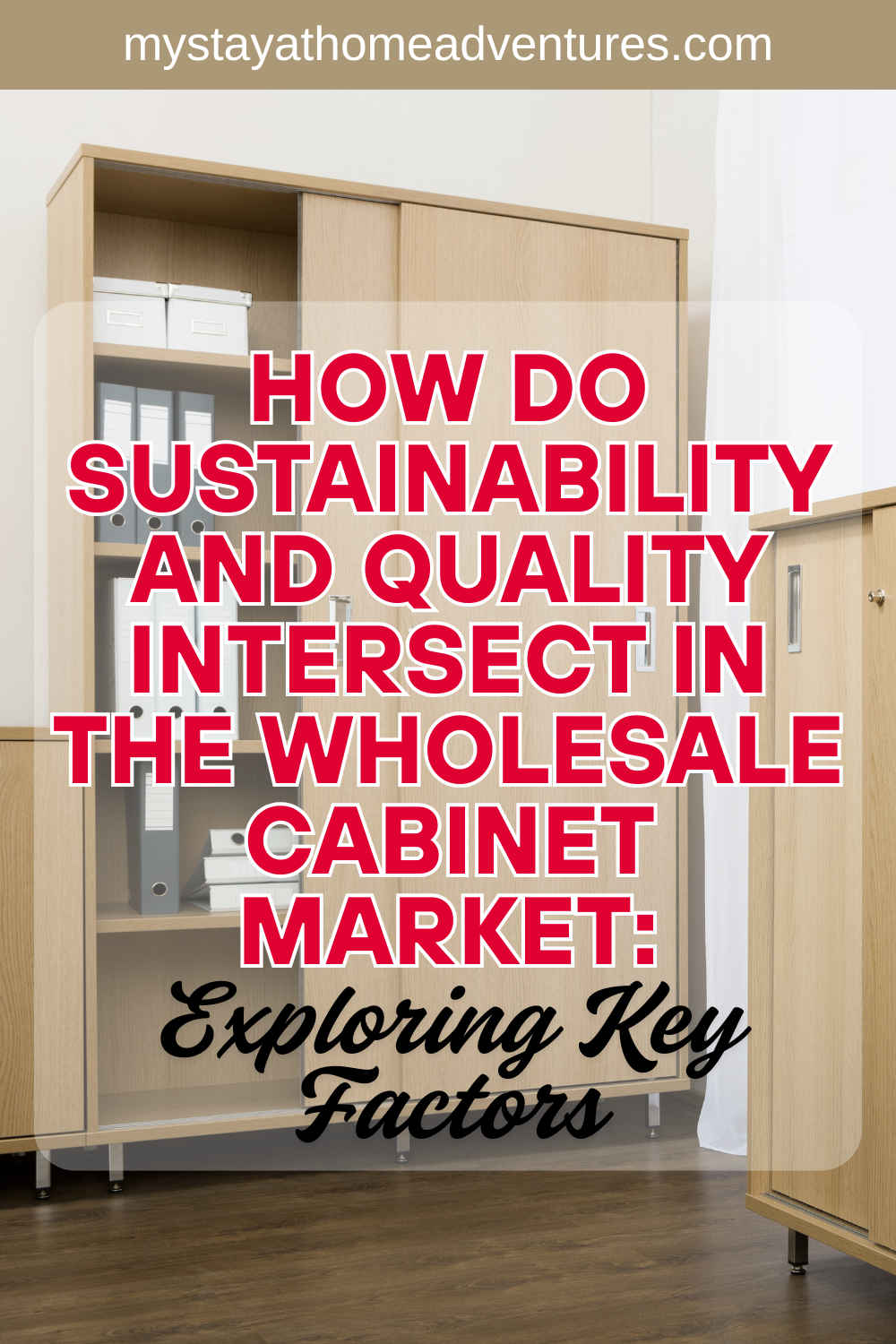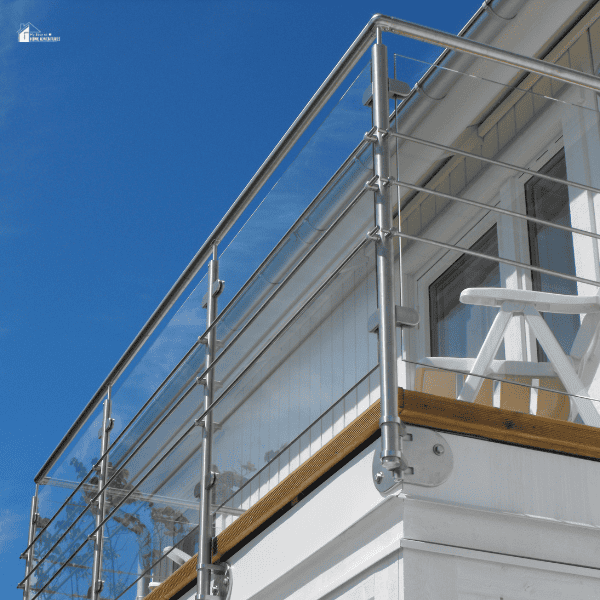How Do Sustainability and Quality Intersect in the Wholesale Cabinet Market: Exploring Key Factors
This post may contain affiliate links which might earn us money. Please read my Disclosure and Privacy policies hereThe wholesale cabinet market is rapidly evolving, driven by a growing focus on sustainability and quality. Sustainable practices and quality craftsmanship are coming together to meet consumer demands for eco-friendly and durable cabinets.
Businesses are increasingly integrating eco-friendly materials and energy-efficient manufacturing processes into their designs.
The choice of materials plays a significant role in this intersection. For example, due to heightened eco-consciousness, there is a rising demand for cabinets made from sustainable materials like plywood.
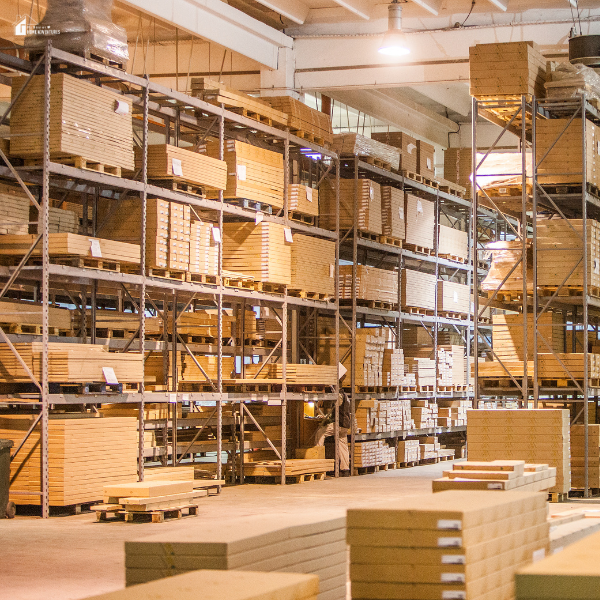
This shift not only benefits the environment but also improves the durability and aesthetic appeal of the products.
Manufacturers are now updating their practices to promote sustainability across the industry. This includes implementing energy-efficient processes and reducing exposure to harmful chemicals.
This progression highlights the balance between maintaining eco-friendly standards and delivering high-quality products to meet market needs.
Intersecting Sustainability and Quality in Wholesale Cabinets
Sustainability and quality go hand-in-hand in the wholesale cabinet market. Using eco-friendly materials, guaranteeing durability, and adhering to recognized certifications are key aspects.
Material Sourcing and Environmental Impact
Cabinet makers often prioritize eco-friendly materials to reduce their environmental footprint. This includes using sustainable wood or recycled materials. Bamboo and FSC-certified wood are popular choices due to their renewability.
Using such materials minimizes deforestation and promotes eco-conscious practices. Moreover, adhesives and finishes are chosen to reduce harmful emissions. Buyers can look for products marked with low-VOC finishes, which contribute less to indoor air pollution.
A trusted RTA cabinets supplier in San Diego consistently adheres to these principles, guaranteeing that their products meet eco-friendly standards.
Durability and Lifecycle Analysis
Durability plays a key role in sustainability, as longer-lasting cabinets reduce waste. High-quality materials like hardwood or engineered wood composites are favored for their longevity.
Durability is assessed through lifecycle analysis, which evaluates the expected lifespan and environmental impact over time. This analysis helps in choosing products that stand the test of time while minimizing environmental harm from production to disposal.
Wholesale cabinets are often subjected to tests to guarantee they meet resilience and usage standards. This guarantees consumers receive products that are not only environmentally sound but also sturdy.
Green Certifications and Compliance
Green certifications provide assurance of sustainable practices. Certifications like LEED, GREENGUARD, and FSC confirm adherence to environmental standards. These certifications assess emissions, forest management, and overall green practices.
For wholesale cabinets, compliance with these certifications signifies a commitment to reducing impact while maintaining quality. Manufacturers that achieve these certifications demonstrate accountability, providing peace of mind to consumers.
Buyers should look for these certifications as visible proof of a product's environmental commitment, guaranteeing both better quality and sustainability.
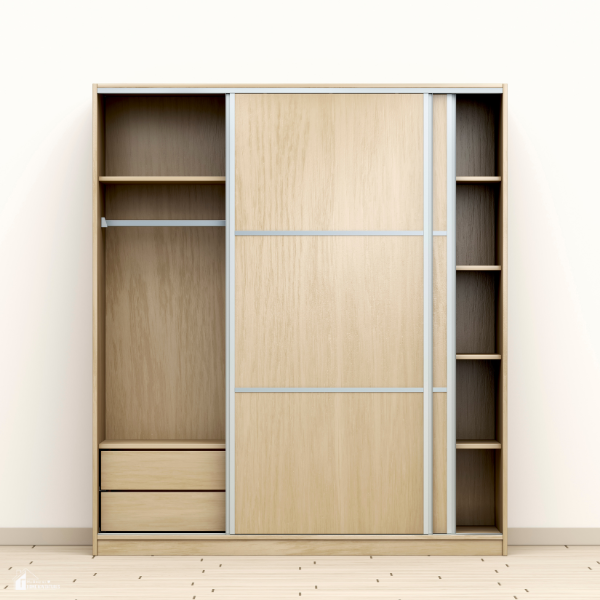
Business and Economic Considerations
In the wholesale cabinet market, sustainable practices and quality control are important for economic success. By examining cost-benefit analyses, supply chain strategies, and market demand for eco-friendly cabinets, businesses can make informed decisions.
Cost-Benefit Analysis of Sustainable Practices
Implementing sustainable practices can lead to long-term savings and societal benefits. Initial costs for eco-friendly materials may be higher, but they often reduce waste and energy consumption. Over time, these savings can offset initial investments.
Sustainable practices also attract customers who prioritize environmental responsibility, potentially increasing sales. Moreover, energy-efficient manufacturing processes contribute to cost reductions.
Businesses often find that investing in sustainability can improve their market position and financial performance.
Supply Chain Optimization for Quality Control
Optimizing the supply chain guarantees that cabinet quality remains consistent while maintaining sustainability. Engaging in thorough vetting of suppliers helps guarantee that materials meet environmental standards.
Regular audits of supplier facilities can identify areas for improvement and reduce defects and returns.
To maintain quality, businesses may introduce batch testing and quality checks throughout the production process. This approach not only maintains high standards but also minimizes waste, aligning with sustainable objectives.
Improved logistics and management reduce delays and improve overall production efficiency.
Market Demand for Eco-Friendly Cabinets
There is a growing demand for eco-friendly cabinets. Consumers increasingly prefer products with a low environmental impact. Offering a sustainable product line can differentiate a brand in the competitive cabinet market.
Marketing these products as environmentally friendly improves appeal to eco-conscious buyers.
Businesses can capitalize on this demand by highlighting certifications and sustainable practices in their marketing efforts. This strategy not only boosts sales but also builds brand loyalty.
As more companies adopt environmentally responsible strategies, meeting market demands for sustainability becomes imperative for economic success.
Conclusion
Sustainability and quality in the wholesale cabinet market are closely connected. Buyers today are drawn to products that are both durable and environmentally friendly.
Eco-friendly cabinets often prioritize materials that minimize environmental harm while maintaining high standards.
Adopting sustainable practices impacts the overall market positively. Companies striving for quality and eco-conscious standards help reduce waste and resource depletion. This dual focus can lead to meaningful benefits for both consumers and the planet.
Key factors such as the choice of materials and production practices are important in this market. They create products that meet customer demands for sustainability without sacrificing quality.
The intersection of these elements plays an important role in shaping the future of cabinet manufacturing.
